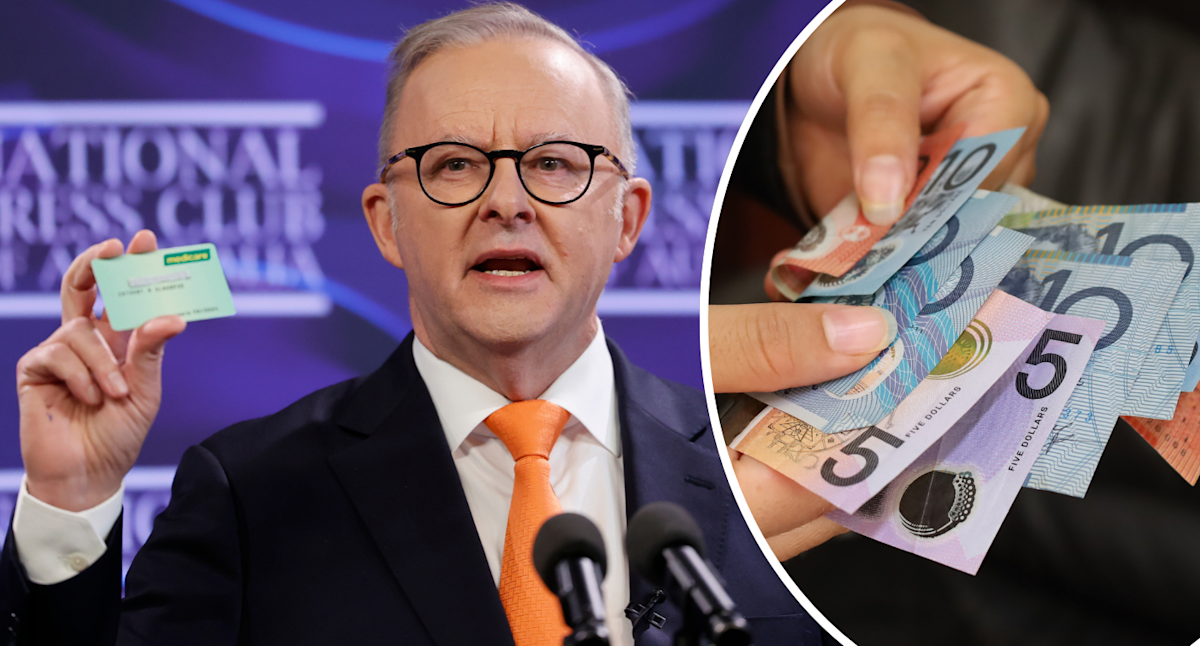Anthony Albanese’s changes to Medicare on November 1 are designed to get more GP clinics bulk-billing. (Source: Getty)
The Medicare system is getting a huge overhaul from this weekend and it could eventually see millions finally become eligible for bulk billing initiatives. At the moment, only those under 16 and those with a concession card can access the Medicare Benefits Schedule (MBS) bulk billing incentives (BBIs).
But from November 1, anyone with a Medicare card will be able to benefit from cheaper visits to the doctors signed up to the new system. The Bulk Billing Practice Incentive Program (BBPIP) will also be introduced to help GP clinics afford this expanded access.
“Expanding eligibility for MBS BBIs to all Medicare-eligible patients and introducing BBPIP will support doctors to continue to bulk bill, improving access to general practice care for all Medicare-eligible patients,” the federal Health Department said.
This is Labor making good on its record $8.5 billion pledge to improve Medicare and make nine out of every 10 GP visits free.
The majority of that funding, $7.9 billion, is going to expanding MBS BBIs.
Health minister Mark Butler revealed this week that 900 clinics had already expressed interest in signing up for the program when it goes live this Saturday.
“This week, they’re charging gap fees and next week, they’ll be a fully bulk billing practice,” he told parliament.
He expected that number to increase in the weeks and months after November 1, and that there will be a “big expansion” of bulk billing.
Do you have a story? Email stew.perrie@yahooinc.com
Labor’s desire to see 90 per cent of GPs bulk-billing by the end of the decade would require roughly 4,800 clinics to be offering the service.
About a third of clinics already offer bulk-billing, meaning that with the addition of the 900 practices, there’s still more than 2,000 that needed to come on board in the coming years to hit Labor’s target.
“They’re going through those numbers, obviously making their own assessment about whether the practice will be better off and whether general practitioners, the GPs that work in their practice, will be better off,” Butler explained.
Clinics that sign up to the BBPIP will share in a 12.5 per cent payment with the doctors who work there, which is designed as an incentive to get more GP practices on the books.
Story Continues
But every GP within that clinic has to bulk bill every single patient in order for everyone to receive that payment.
GPs also already send part of their wage to the clinic they practice at, which helps pay salaried staff like receptionists, as well as electricity and other associated costs.
Royal Australian College of General Practitioners (RACGP) President Dr Michael Wright told Yahoo Finance that the updated system might not necessarily translate to more bulk-billing.
RACGP President Dr Michael Wright said the policy is a great start, but many GPs won’t be able to sign up for bulk-billing. (Source: RACGP)
Since the promise was announced, he’s spoken with GPs who told him it could increase demand on already-stretched clinics, or could make their practice “unviable” if they take part.
“Many practices won’t be able to participate in this because the cost of care is greater than what the current rebate plus this incentive might be,” he said.
“We’ve got to make sure that GPs can deliver high-quality care all around the country and that it doesn’t put unreasonable pressure on practitioners to see people too quickly.”
The RACGP did not advocate for the BBPIP, and instead said any government investment should be “directed at increasing patient rebates, particularly for longer consultations”.
A Melbourne GP, who spoke on the condition of anonymity, told Yahoo Finance that Labor’s pledge to the public that it’ll be “easier to see a GP for free” could create animosity against doctors not part of the BBPIP.
“Ultimately we will be ‘the greedy doctors’ that refuse to bulk bill,” he said.
He claimed the funding boost will incentivise GPs to cut consultation periods to be shorter as they will receive more from the government by having more appointments.
Butler said it will definitely be worth their while to join the program.
“Two years ago, a full-time, fully bulk-billing GP would have been earning about $280,000 a year after they paid their practice costs,” Butler said.
“From this weekend, they’ll be earning $405,000 a year, a $125,000 increase.”
Get the latest Yahoo Finance news – follow us on Facebook, LinkedIn and Instagram.

